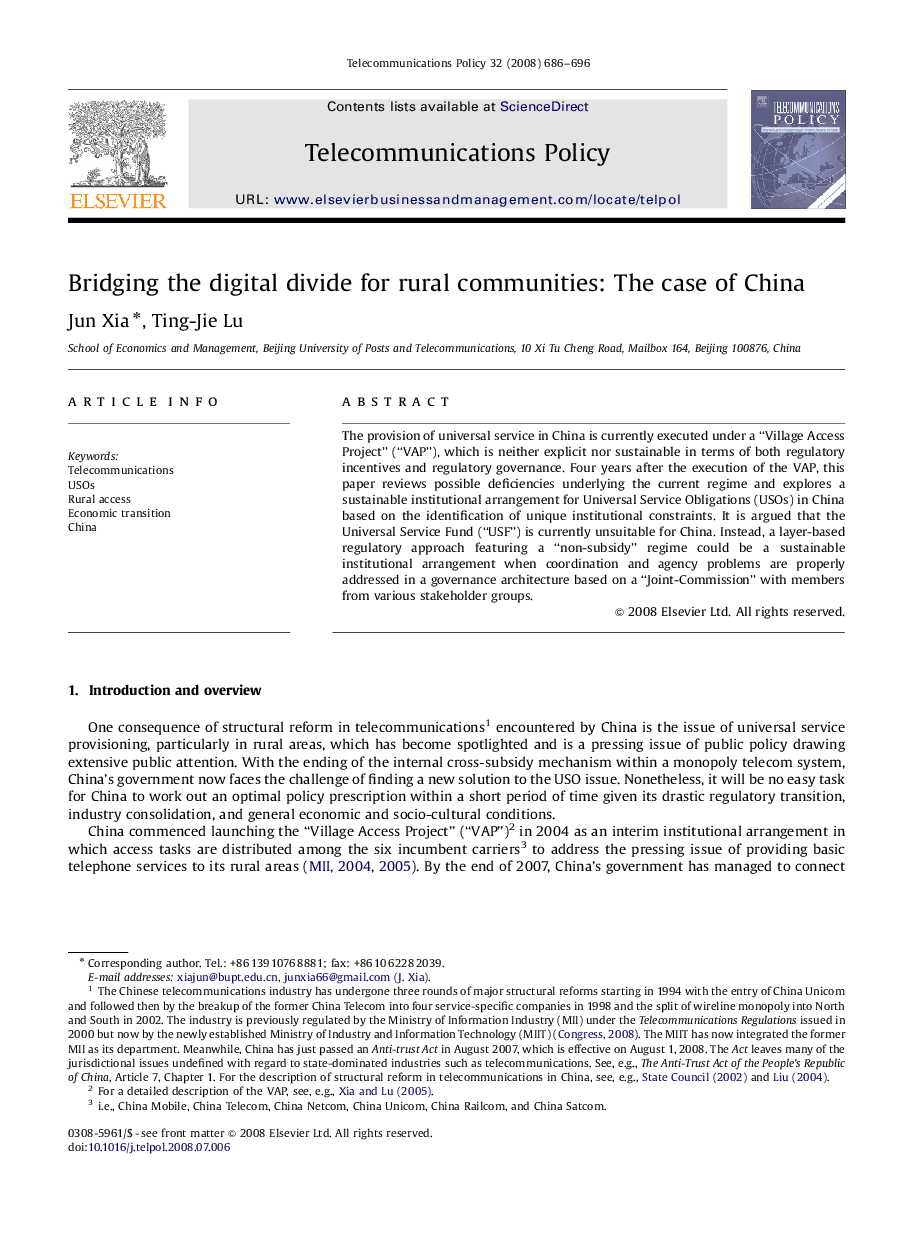| Article ID | Journal | Published Year | Pages | File Type |
|---|---|---|---|---|
| 557094 | Telecommunications Policy | 2008 | 11 Pages |
The provision of universal service in China is currently executed under a “Village Access Project” (“VAP”), which is neither explicit nor sustainable in terms of both regulatory incentives and regulatory governance. Four years after the execution of the VAP, this paper reviews possible deficiencies underlying the current regime and explores a sustainable institutional arrangement for Universal Service Obligations (USOs) in China based on the identification of unique institutional constraints. It is argued that the Universal Service Fund (“USF”) is currently unsuitable for China. Instead, a layer-based regulatory approach featuring a “non-subsidy” regime could be a sustainable institutional arrangement when coordination and agency problems are properly addressed in a governance architecture based on a “Joint-Commission” with members from various stakeholder groups.
